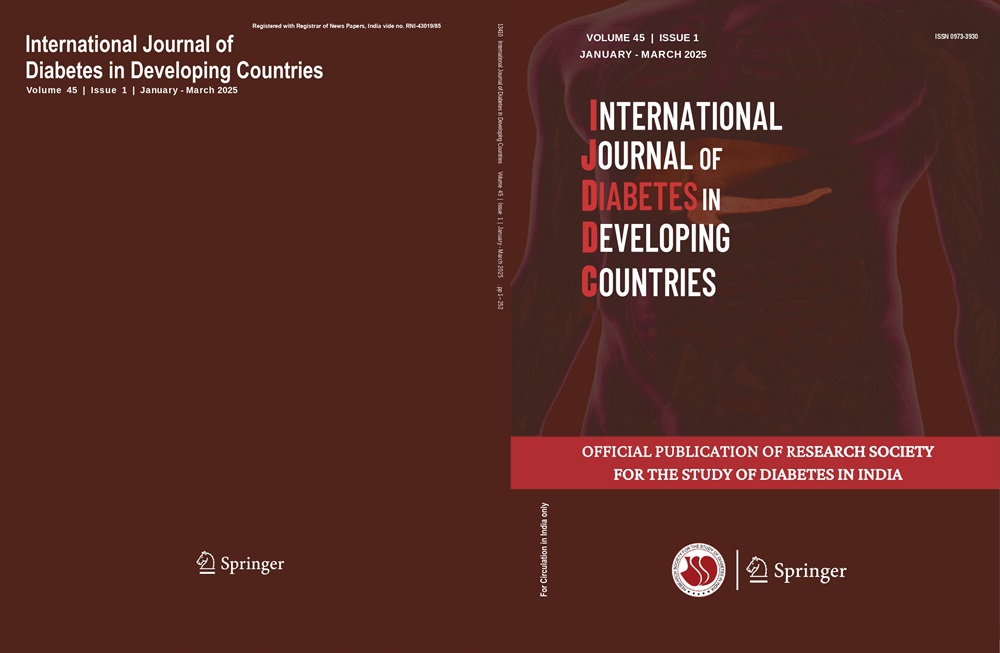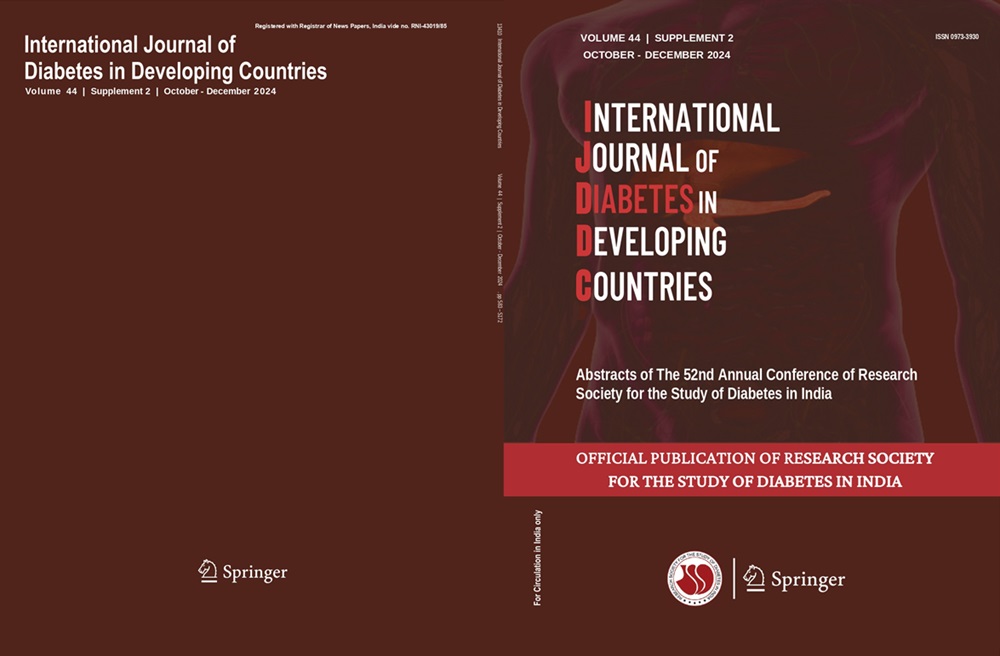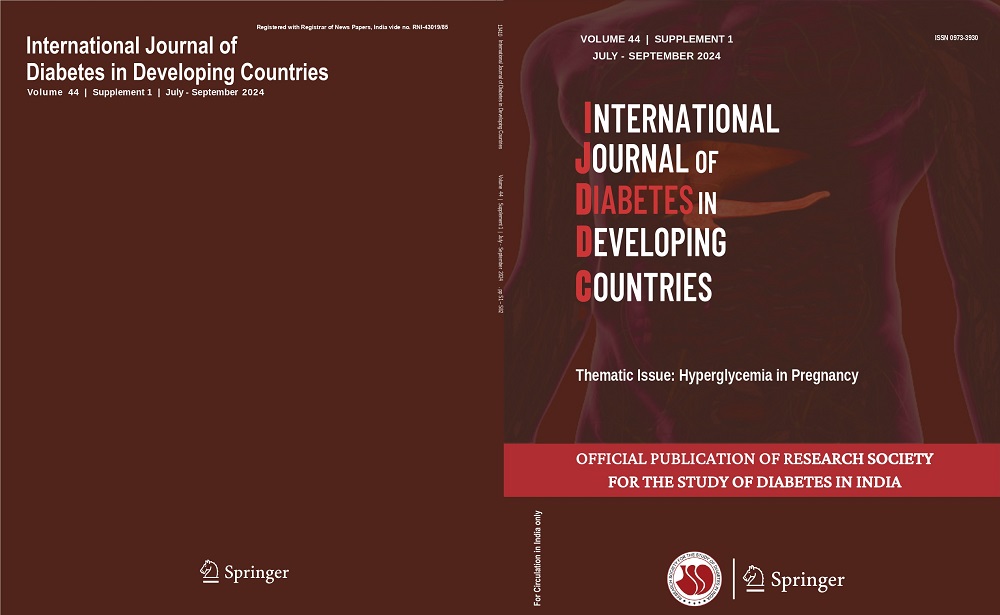C. P. Bineesh, M. V. Vimal, Vipin Viswanath, Pranav Kumar Prabhakar
Keywords
Prediabetes • Adipokines • ELISA • Insulin resistance • HOMA-IR
Objective Increasing evidence revealed the role of adipokines in carbohydrates and fat metabolism. The present study was designed to evaluate the adiponectin, leptin, and resistin levels in prediabetes subjects and evaluate the relationship between these adipokines and insulin resistance.
Methods A hospital-based descriptive study was conducted for one year. 200 individuals who met the inclusion criteria were enrolled in the study. Based on the oral glucose tolerance test, the study subjects were grouped into healthy controls (n = 100), prediabetic non-obese (n = 61), and prediabetic obese (n = 39). Blood glucose estimation was done by the glucose oxidase peroxidase method. Chemiluminescent immunoassay was used for the measurement of insulin level and homeostasis model assessment-estimated insulin resistance was used for the assessment of insulin resistance. Serum adipokines levels were determined by ELISA. Statistical analysis was performed by using SPSS Software.
Results Serum adiponectin levels decreased significantly in obese prediabetes (7.21 ± 2.15 μg/ml) when compared to nonobese prediabetes (7.28 ± 2.41 μg/ml) and healthy control subjects (13.64 ± 2.88 μg/ml, p < 0.001). Serum leptin levels increased significantly in obese prediabetes (13.59 ± 2.59 ng/ml) when compared to non-obese prediabetes (9.84 ± 2.66 ng/ml) and healthy control subjects (12.28 ± 2.65 ng/ml, p < 0.001). Serum resistin levels increased significantly in obese prediabetes (17.67 ± 3.60 ng/ml) when compared to non-obese prediabetes (17.2 ± 3.93 ng/ml) and healthy control subjects (14.46 ± 4.16 ng/ml, p < 0.001). Adiponectin-leptin ratio decreased significantly in obese prediabetes (0.56 ± 0.22) when compared to non-obese prediabetes (0.79 ± 0.4) and healthy control subjects (1.15 ± 0.37; p < 0.001). Fasting insulin resistance was statistically significant (p < 0.001) in all groups.
Conclusion The present study strongly suggests that the adipokine profile is an ideal diagnostic tool to predict prediabetes and metabolic syndrome, especially among those with insulin resistance.




